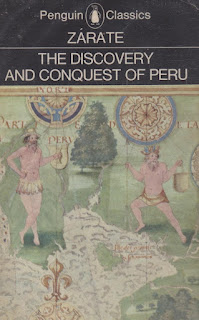 Gandhi: The Years That Changed the World by Ramachandra Guha
Gandhi: The Years That Changed the World by Ramachandra GuhaMy rating: 4 of 5 stars
As I finished the book, the struggle was to how to write about it and where to start. Gandhi lived a very crowded and active life and it is difficult to find what to write about it all as there is a sense of missing out on a lot of detail. The 900+ pages of the book amount to Guha's dilemma about the same. How to account for all the events of his life and those lives he touched upon and the events he shaped must have been a daunting task to set for oneself.
Guha's narrative encompasses the political events of the day, the personal life of Mahatma and how the world looked at him. The problem with all that is that Gandhi lived his life in full public glare and didn't bother to hide away anything. Hence most of what he wanted to say and do, he did in the public leaving nothing much of interest for an enterprising biographer writing 70 years later.
There are some new material from the archives which are interesting to read about and the correspondences but was a little disappointed by the non-judgemental tone of the entire book which even Gandhi would've found unacceptable.
A self-proclaimed 'Philosophical Anarchist', Gandhi's life was what he called his autobiography - his experiments with truth. He was one who was experimenting with the truth always - trying to change his perception of it if the results are not to his liking. He was open about it, wrote about it, keep talking about it and changed his views if he was convinced.
However, his basic principles of non-violence or civil disobedience did not get to change. He experimented the methods in which they can be taken to the masses (which experiments were mostly completed during his time in South Africa) but never changed the basic principle underlying them. However he was ready to talk about them to everyone, wrote tons of articles about them and practiced till his death.
So, the political part of the book has to tell the story which was well-known to everyone. To me, Gandhi's relationships with Rajaji or M.A.Ansari are the new. The movements he spearheaded, the reasons he pulled back the agitations are all well-documented and known. So Guha takes the path of showing the responses to these events from the press and the outer world. While that adds to the story, it does not alter it in anyway.
What I would've preferred is probably for Guha to place the events of Mahatma's life in a frame of the events of the day and try to make sense out of it. But sadly, the biographer stops at telling the story without a larger concept or a viewpoint of what happened. The latter part may have been a conscious decision but the former one was a missed chance.
Two personalities stand out in the book as important - one politically and the other on a more personal front.
 |
| Gandhi, Ambedkar and Jinnah |
The impetus given by Ambedkar's stand helped in the opening of the temples and wells for the lower castes and helped in moving forward the reformation needed in the Hindu religion as a whole. This is a relationship and issue that resonates more in the current India - which is still struggling to move forward on these reforms and has to handle the resurgent backward castes along with the rest of the Brahminical hierarchy and the Dalit identification has made it more difficult to implement any now. A deeper analysis of these chapters would've made a lot more sense as a book for the modern India.
 |
| Saraladevi |
The episode of Gandhi's romantic liaison with Saraladevi Chaudarani is something that was new to me. I never heard or read about it before now. So it was interesting to read about this part of Gandhi's life but as Guha admits there is little material available - their correspondences seem to have been destroyed with only a few letters left and so a lot of the story seems to be surmises from the references to their relations in other people's letters and writings. So while it is interesting, it is also the part where there is not much data. However, based on what I read, the affair lasted about a couple of years with no physical consummation but Mahatma keep referring to the episode in later years as when he came close to physical lust (though without any direct reference to the lady). But how important it is in the overall life of Mahatma is a question that never gets asked or answered.
Surprisingly, Nehru gets a minuscule part in the book (less than Patel or Bose), but Jinnah gets his share but the nuances of the discussions and dissent in Congress with Mahatma over partition are glossed over.
Overall, I was left a little dissatisfied with the book as I would've expected Guha to tell a little about the relevance of Gandhi's life in the modern India with the resurgent Hindutva in power and the Hindu-Muslim harmony is in more danger than any other period of the free India. That would've made the book a little more than a biography but made a lot of sense .

1 comment:
Very great blog. your blog showed in the years that changed the world. It is informative post. I am working in Vehicle towing company. This post helpful for me. It is informative post. Thanks for posting.
Post a Comment